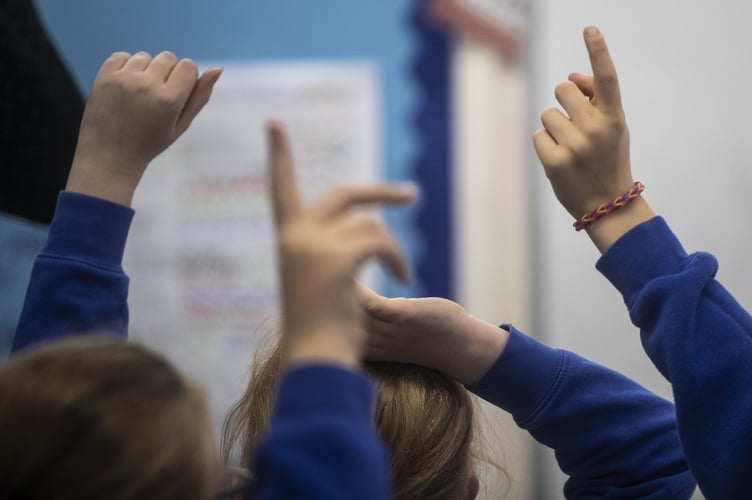The reading skills of young North Somerset children have got worse since last year, new figures show.
School leaders' union NAHT said investing in early years education was "essential" to tackling educational inequality but warned there was "no silver bullet" to fix things.
All pupils in England complete the phonics screening check at the end of Year 1, typically aged six.
New figures from the Department for Education show 82% of Year 1 pupils in North Somerset met the required standard in the most recent school year – a slight decrease on 83% a year earlier.
Across England, 80% of pupils met the standard, in line with last year.
Girls outperformed boys in every part of the country, with 85% of girls meeting the standard in North Somerset, compared to 78% of boys.
However, the gap between the genders in North Somerset increased compared to last year.
Nationally, the gap increased slightly, from seven to eight percentage points.
Pepe Di’Iasio, general secretary of the Association of School and College Leaders, said the gender gap in reading levels "is part of a pattern which also sees girls generally outperform boys in assessments at 11 and 16".
He added: "Learning to read unlocks access to the rest of children’s education and we would like to see more funded support for schools for early reading interventions and strategies to address attainment gaps.
"Parents and carers also have a key role to play by making time to read with their children and asking the school what they can do at home to support literacy development."
James Bowen, assistant general secretary of the NAHT, said there are "a wide range of development, social and cultural factors that contribute" to the gender gap.
However, he questioned the need for a standardised annual test.
"One thing we know doesn’t make a difference is the phonics check itself," he said.
"There is no evidence that it has had a positive impact on children’s reading development, and it hasn’t helped to close attainment gaps.
"Teachers know which pupils need further support in reading without a statutory test.
"There are significant savings that could be made by scrapping the check which could be put to better use supporting children’s learning."
A DfE spokesperson said the upcoming Curriculum and Assessment Review would raise standards for every child.
They added: "Tackling the baked-in inequalities in our education system will take time, but through our Plan for Change this Government is taking action against the root causes that we know are holding young people back.
"There are entrenched differences in outcomes between girls and boys. Any gap, whether it’s girls outperforming boys or vice versa is something to be carefully considered and addressed.
"There is more we can do and must do to ensure every child and young person can achieve and thrive regardless of their gender or where they live."


.jpeg?width=209&height=140&crop=209:145,smart&quality=75)
